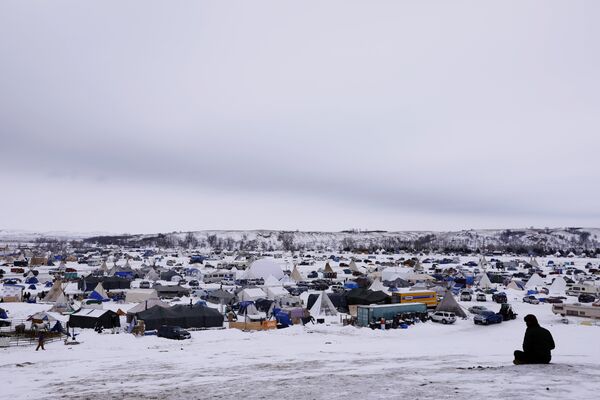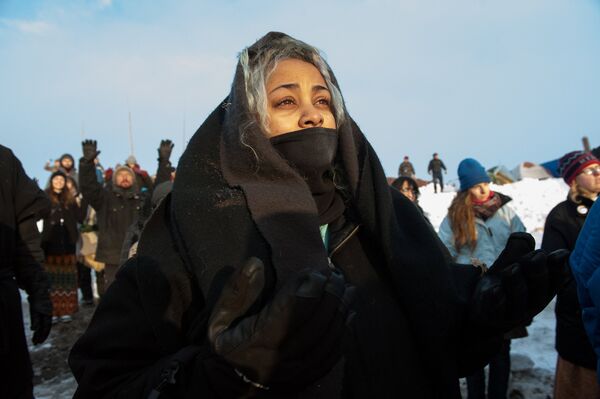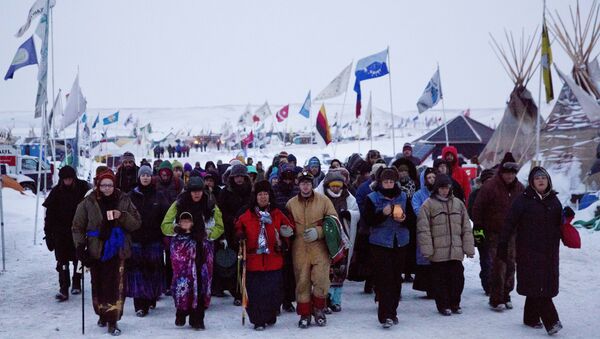Around 2,000 US veterans have joined protestors in North Dakota rallying against the construction of the Dakota Access Pipeline, a $3.8 billion project to transport more than four hundred thousand barrels of oil daily across the Missouri River and other ecological habitats.
The proposed pipeline is to extend 1,168 miles (1,880 km) across North Dakota, South Dakota, Iowa, and Illinois, crossing through communities, farms, tribal land, sensitive natural areas and wildlife habitat.
Opponent to the project include local Native Americans, who argue that the pipeline could poison the local water supply and destroy sacred sites near the reservation of the Standing Rock Sioux Tribe.
Hundreds of activists have spent months protesting, and there have been recent reports of increasing use of force by local law enforcement, including firing rubber bullets, tear gas and water cannon at protestors in sub-zero temperatures.
This weekend some 2,000 US veterans are joining the protest. They will form a human shield around them so they can have "a moment of peace and take a little bit of pressure off them," a spokeswoman for Veterans Stand for Standing Rock said.

"It's very scary when the government is being used as a tool of corporate interests. This pipeline is not in the interests of the environment, it's not in the interests of our energy needs, it is in the interests of oil companies who will be shipping this fuel offshore and making profits. They're using the government and suppressing our civil liberties and committing major human rights violations to achieve those goals," Tabakin said.
Tabakin said that there are several reasons for the limited media coverage. One is the harsh weather conditions and relative isolation of the protest sites. Another is the tendency to dismiss environmental protestors as fringe groups.
"There is a tendency to perceive any kind of protests like these as fringe operators, but these are not radical people, these are very peaceful stakeholders in this land, the indigenous people in particular and the people who depend upon these water supplies."

"Ultimately, the Obama administration is going to have to do something. Whether it's keeping the peace, or speaking out, or using what remaining tools they have available to them to cool this down. To stop, go back and look at all the regulations that exist that have been ridden roughshod over by piecing together a whole series of small projects rather than looking at the environmental impact of the whole thing," Tabakin said.




